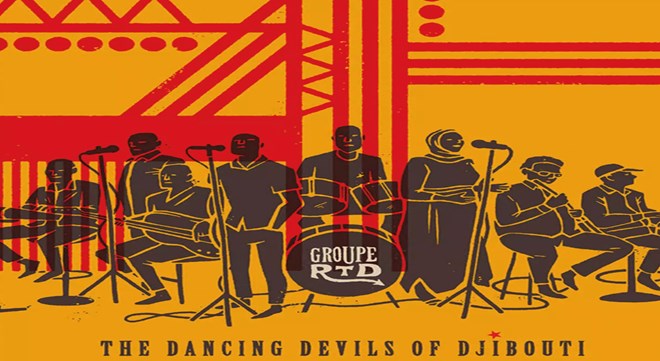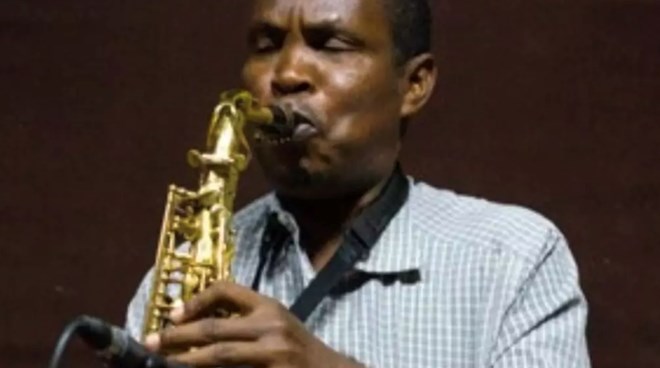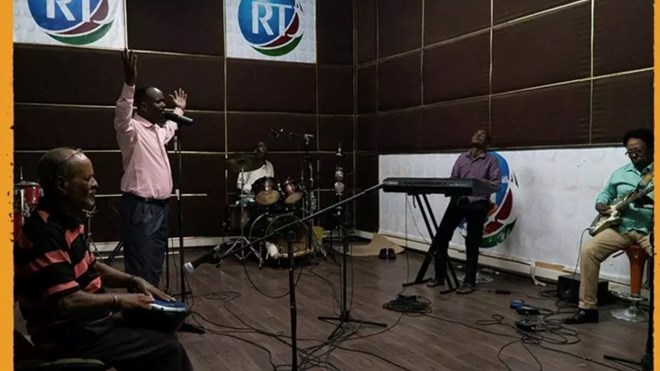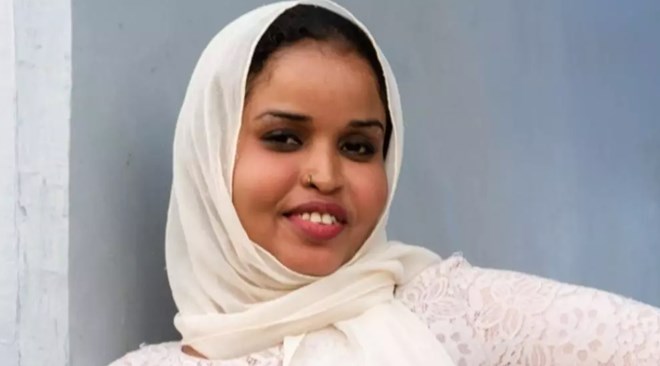
Wednesday May 20, 2020

The Dancing Devils of Djibouti released on vinyl © Ostinato Records
Djibouti is better known as a strategic outpost than a hotbed of music but Groupe RTD, the country's national radio band, are one of its best kept secrets. By day they play at official ceremonies, off duty they let rip their love of American jazz, Indian Bollywood, Jamaican reggae and Somali funk. For the first time ever an independent label, Ostinato Records, was allowed to capture that sound and release it to the outside world on the upcoming Dancing Devils of Djibouti album.
Since Djibouti gained independence from France in 1977, its music industry has been controlled by the state, its bands run like national enterprises.
And none more so than Groupe RTD, the official band of national radio Radiodiffusion-Télévision Djibouti (RTD), whose job it is to perform at official ceremonies.
Vik Sohoni, producer and curator with Ostinato Records, met the band by chance in 2016 when tracing author’s rights for its compilation album of Somali music, Sweet as Broken Dates.
He found Groupe RTD at the radio’s recording studio jamming “off duty”.
“We quickly realised this was not just some national, ceremonial band, this was a very raw, gritty, tough, funky band,” he says.
“A lot of these guys were old legends and there was some young talent too. Everything that was happening in that studio was world class musicianship and we were really blown away.”
Among the older talent is saxophonist Mohamed Abdi Alto, a self-taught musician who Sohonie says deserves to be “right up there” with the world's greatest jazz instrumentalists. “He’s a national treasure, the best saxophonist in the country and possibly the most unheralded saxophone virtuoso in all of Africa.”

Saxophonist Mohamed Abdi "Alto" - Djibouti's finest sax player - has been deeply influenced by Harlem jazz. © Janto Djassi
Alto emerged as part of the east African scene in the 1970s as did the band’s guitarist Abdirazak Hagi Sufi “Kaajaa” and bass player Abdo Houssein Handeh.
New talent includes vocalist Asma Omar, who joined Groupe RTD after winning a youth talent competition, and Hassan Omar Houssein, also a singer.
The band performs Somali music, in Somali. But there’s a “distinct Djiboutian twist,” which comes partly from the country’s geography and history as an important trading post at the mouth of the Red Sea and Gulf of Aden. Many cultures - but above all the Middle East and India - have left their mark on the country and its music.
“What’s incredible about Djiboutian music is not only its ability to take in all the different cultures, but what the musicians really grew up with,” Sohonie says.
“Three styles of music that they constantly refer to, which is really the icing on top of the cake for Djiboutian music, is Jamaican music which guitarist Abdirazak listened to extensively, Indian Bollywood music and classic Indian songs which the singers said that they would watch to learn how to sing and to adapt their vocal styles and American jazz which Mohamed Abi Alto constantly referred to as his greatest influence.
“You take those three styles of music and you combine it with all the different cultures that have passed through Djibouti because of where it is and you have a really diverse cosmopolitan sound.”

Groupe RTD in "after hours" jamming session at Djibouti's national radio station © Janto Djassi
Sohonie was determined to record the band, but it proved a huge challenge. The label had to wade through a web of bureaucracy and it wasn’t until 2019 that the authorities gave the green light.
RTD’s technical equipment was past it best and they flew in their own state-of-the-art mobile studio and set about recording 10 love songs, the majority written by Mohamed Abi Alto.
But further red tape meant they were left with just three days to record.
“The musicians said they knew how it goes at the top and were just very enthusiastic about having the chance to become the first band to have a commercially released album,” says Sohonie.
The intense recording sessions were fuelled by chewing copious amounts of the leaf known as khat, a stimulant popular in Horn of Africa region.
“There was a sign specifically in the radio which said ‘no khat chewing and no smoking’. The band basically said ‘if we’ve only got three days, that’s a rule we’re not gonna follow’ so they tore down the sign.”
Despite not having fewer microphones as you’d use in a European recording studio Sohonie is pleased with the result.
“In the end we were able to capture everything in a really beautiful way because that studio is where every single song that’s ever been recorded in Djiboutian history was recorded, so it has a lot of history, and therefore energy. Even if the acoustics are a bit wore down, that is really powerful.”

Vocalist Asma Omar, 20, is the youngest member of Groupe NTD, and its only female. © Janto Djassi
Ostinato Records plans to get Groupe RTD touring internationally. Until now the only cultural entity to travel abroad was the national dance troupe sponsored by Libya’s late Mouammar Kadhafi.
The coronavirus epidemic, which has affected Djibouti badly, has put tour plans on standby for the moment. But Sohonie hopes the album will “inspire the government to give the green light to be able to have the band tour all over the world, which they should".
He also has high hopes that lifting the shroud on Djiboutian music will broaden the country's image.
“There’s so much global interest in the country, but I think coverage of the country and perception of the country tend to be through the lens of geopolitics or global trade. Or perhaps there isn't any registering of any kind of image of beauty at all. So we hope this album is able to put the small but very culturally powerful country on the musical map."
He senses the country is opening up and they were able to ride that wave.
“We were able to gain access to a lot of things and I think the opening of the country and all the global interest has softened attitudes at the very senior leadership to be able to allow entities like myself and record labels to finally work with their music."
The Dancing Devils of Djibouti is out on 5 June on Ostinato Records. A portion of the album sales will go to Djibouti's Ambassador to Germany, who helped make the recording possible, to help the country cope with the Covid-19 pandemic.